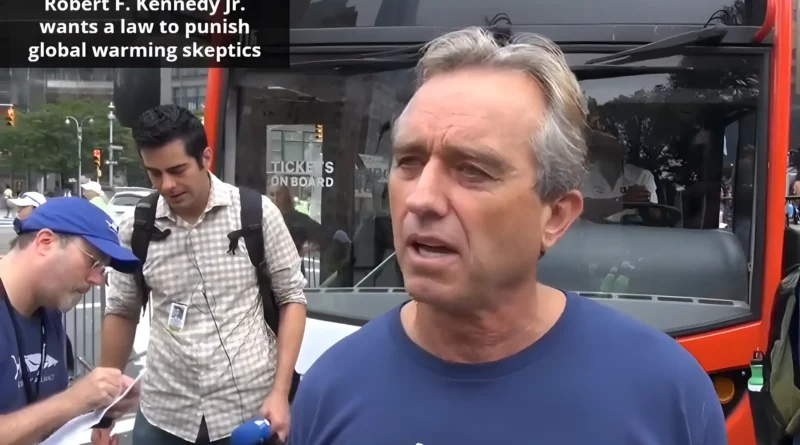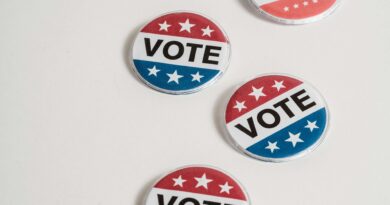Free Speech Versus Climate Change
Free Speech Versus Climate Change
Table of Contents
Introduction
Free Speech Versus Climate Change
As the world grapples with the urgent challenge of climate change, it’s essential to foster open dialogue and diverse perspectives. However, some governments have resorted to extreme measures, attempting to imprison citizens who express skepticism or dissent regarding climate change. That’s exactly what the Socialist Democrat Party of America would like to do. Robert F. Kennedy Jr. unlike most democrats is open and up front about it. This post delves into the inherent dangers of such actions, emphasizing the critical importance of protecting free speech, fostering scientific inquiry, and upholding democratic principles.
1. The Essential Role of Free Speech in Democracy:
Free speech lies at the heart of democratic societies, serving as a cornerstone of individual liberty and societal progress. When governments target individuals for expressing dissenting views on climate change, they undermine this fundamental right, stifling the exchange of ideas and inhibiting the democratic process. Without the freedom to express diverse opinions and engage in open debate, democracy becomes hollow, and dissenting voices are silenced, eroding the very foundations of democratic governance.
2. Scientific Inquiry: Nurturing Skepticism and Debate:
Science thrives on skepticism, inquiry, and robust debate. By criminalizing climate change dissent, governments impede the scientific process, hindering the exploration of alternative hypotheses and inhibiting progress towards understanding complex environmental issues. True scientific consensus emerges from rigorous examination of evidence, not coercion or censorship. Encouraging skepticism fosters a culture of critical thinking, innovation, and resilience in the face of uncertainty, ultimately advancing our collective understanding of climate change.
3. Threats to Democratic Principles and Civil Liberties:
The criminalization of climate change dissent poses a grave threat to democratic principles and civil liberties. Democracies rely on the active participation of informed citizens in public discourse to function effectively. When governments suppress dissent, they undermine democratic values, infringe upon individual rights, and erode public trust in governmental institutions. Moreover, targeting individuals for their beliefs sets a dangerous precedent for the suppression of free speech and the persecution of political dissent, paving the way for authoritarianism.
4. The Counterproductive Nature of Suppression:
Attempting to imprison citizens who disagree with the climate change debate is not only ethically problematic but also counterproductive in achieving climate goals. Coercive measures are unlikely to change deeply held beliefs or persuade skeptics of the validity of mainstream climate science. Instead, such actions may exacerbate polarization, fuel mistrust in scientific findings, and hinder efforts to build consensus around meaningful climate policies. Effective climate action necessitates inclusive dialogue, collaboration, and respect for differing viewpoints, not censorship and suppression.
5. Constructive Alternatives to Criminalization:
Rather than resorting to draconian tactics, governments should promote an environment of open dialogue, evidence-based discourse, and respect for diverse perspectives. This involves investing in science education, fostering media literacy, and supporting initiatives that facilitate constructive engagement on climate issues. By encouraging dialogue and debate, governments can empower citizens to make informed decisions and contribute meaningfully to addressing climate change challenges. Moreover, fostering a culture of inclusivity and collaboration strengthens societal resilience and enhances the effectiveness of climate mitigation and adaptation efforts.
6. Conclusion:
Free Speech Versus Climate Change. In conclusion, the attempt to imprison citizens who disagree with the climate change debate, as RFK Jr. has expressed his wishes to do so, represents a dangerous assault on fundamental democratic principles and civil liberties. Suppressing dissent undermines free speech, impedes scientific progress, and threatens the integrity of democratic governance. Instead of resorting to punitive measures, governments must uphold the values of free expression, foster scientific inquiry, and engage in inclusive dialogue to address the complex challenges posed by climate change. Only through respecting diverse perspectives and promoting open discourse can we effectively confront the climate crisis and safeguard the future of our planet.




